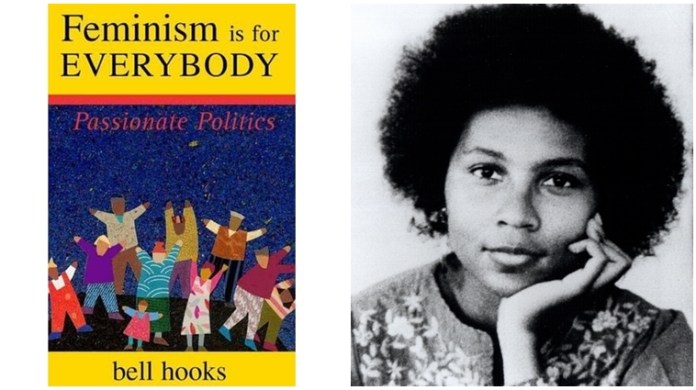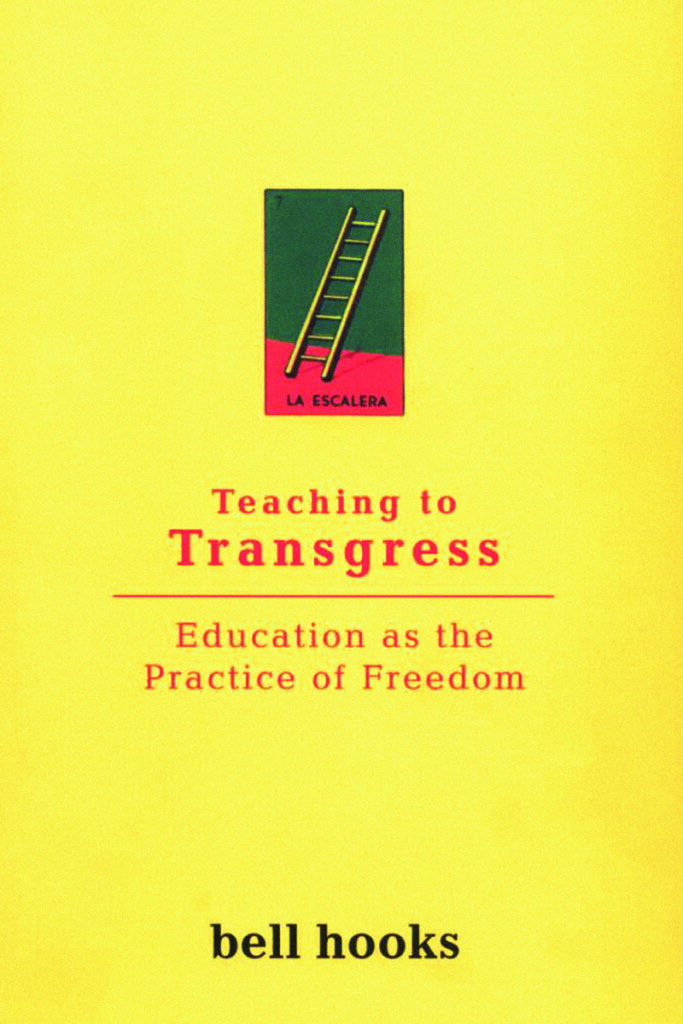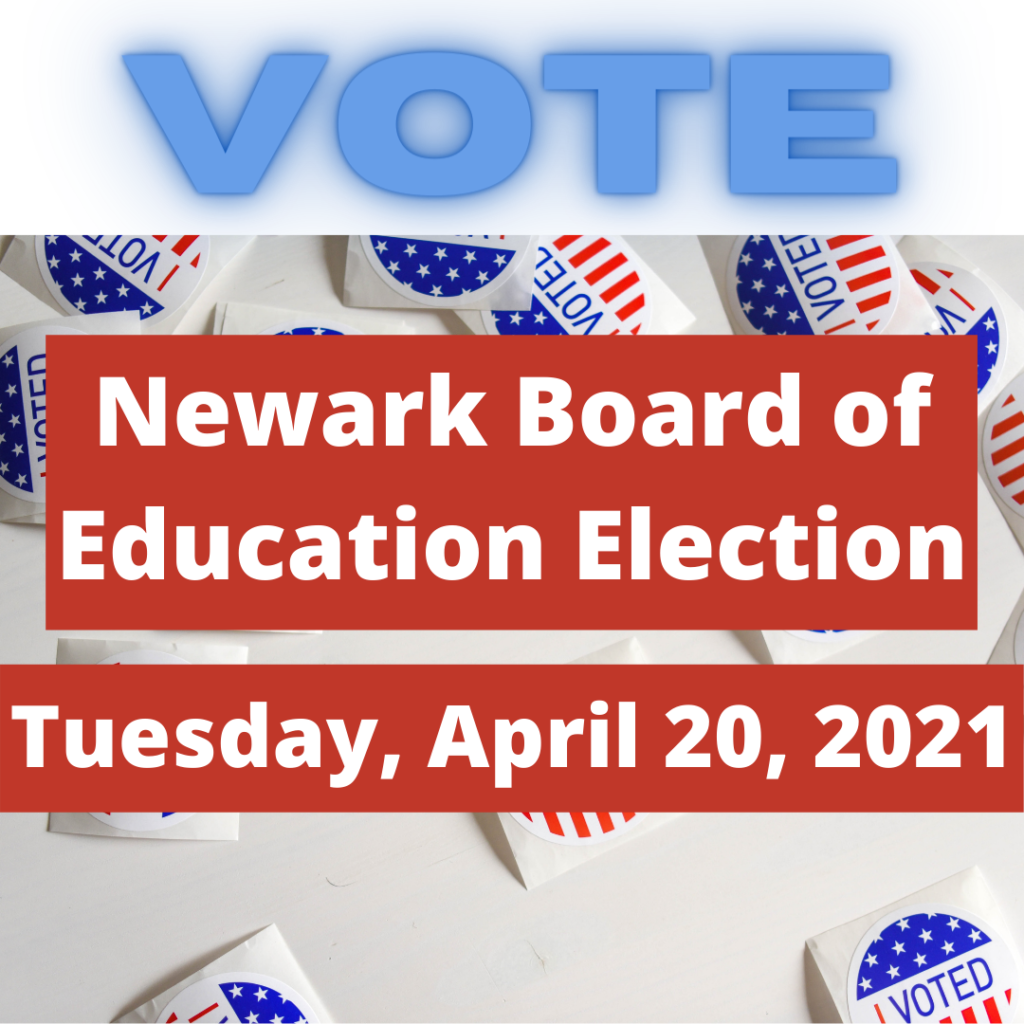
While grading response papers this fall semester, a few times I noted for students that bell hooks’s name is spelled using lowercase letters. I didn’t offer an explanation; I left that for them to discover on their own. But also, I didn’t know. I didn’t have a definite answer. I was in a classroom observing a student teacher when the notification popped up on my phone alerting me of her transition on Wednesday, December 15th. My immediate feelings were of sadness. Here’s another great loss. My mind also occupied a space of pride and appreciation because bell hooks will live on not only through her writings but also through her students and loved ones, just as James Baldwin, Audre Lorde, W.E.B. DuBois and so many others have done.
Many of the articles serving as obituaries used the explanation of bell hooks’s differently-spelled name in their headlines. BlackAmericaWeb.com reported a two-fold purpose: to honor her great-grandmother, Bell Blair Hooks, and to draw attention to her ideas rather than her name. I guess that worked on me. bell hooks’s name definitely made me wonder, who was this person who dared to be different? And I was pulled into a world that–although I didn’t completely understand or wasn’t completely committed to–I knew somehow was significant to the project I had begun of education transformation through the leadership of teachers.
Teaching to Transgress: Education as the Practice of Freedom is the first book I owned by bell hooks and a chapter of which was assigned on the abovementioned course’s syllabus. In this recent re-reading, I pulled the following quote to use in a talk: “Professors who embrace the challenge of self-actualization will be better able to create pedagogical practices that engage students, providing them with ways of knowing that enhance their capacity to live fully and deeply” (p. 22). This quote speaks to the book’s subtitle as well as the topic of my talk which was about critically evaluating our work as educators. Whether described as neoliberal, neoconservative, or neocolonial, global public education systems have career-readiness as a mainstay of their missions. hooks wrote and spoke of education having a liberatory purpose, having a purpose of overcoming oppression.
Seeing chapter titles in Teaching to Transgress such as “Eros, Eroticism, and the Pedagogical Process” and “Ecstasy: Teaching and Learning Without Limits” intrigued me–and made me uncomfortable. These were not words that usually came to mind when I thought about education and teaching. I had long earlier come to discover for myself the power of language during undergrad when I was drawn to study linguistics, sociolinguistics and Black vernacular more specifically. I have never felt like a “true” English major, or teacher for that matter, because I don’t have a love for literature. I have a love for structure, and how these structures both delimit and create. What I have come to commit to is a deliberate use of language in the process of re-constitution. This means diction, semantics, syntax, voice–power lies in what we say and how we say it.
A key point of the “Eros, Eroticism, and the Pedagogical Process” chapter is that thinking differently would lead to living differently. hooks discusses eros/eroticism as passion and a moving force, not merely existing in the sphere of sexuality. None of these ideas are welcomed in the traditional classroom, which reflects a White heteronormative capitalist patriarchal system. How can we transform if we’re told to stand still?
hooks also influenced my ability to name “a White heteronormative capitalist patriarchal system.” Feminism is for Everybody: Passionate Politics gave me a foundational understanding of feminism and gave me the confidence to identify as a feminist (later Alice Walker would develop my understanding of intersectionality through the identity of womanist). hooks’s writing is profound without being esoteric; this book truly is for and can be understood by anyone. She provides a definition of feminism as “a movement to end sexism, sexist exploitation, and oppression” (p. viii), making clear that being a feminist is not about being anti-male and that anyone, including men, can be feminists.
As a prominent cultural critic, bell hooks wrote regularly about race, gender, and class in society. Killing Rage: Ending Racism is a collection of her essays. And though published more than twenty-five years ago, the ideas explored ring true just as much today, particularly with critical race theory being debated in the political arena. A thread running through the chapters of this book is the central role White supremacy plays in maintaining the oppressive nature of our reality and how we must illuminate it every chance we get if we are to achieve a just and democratic society.
Rest in power bell hooks.
Leave a Comment

